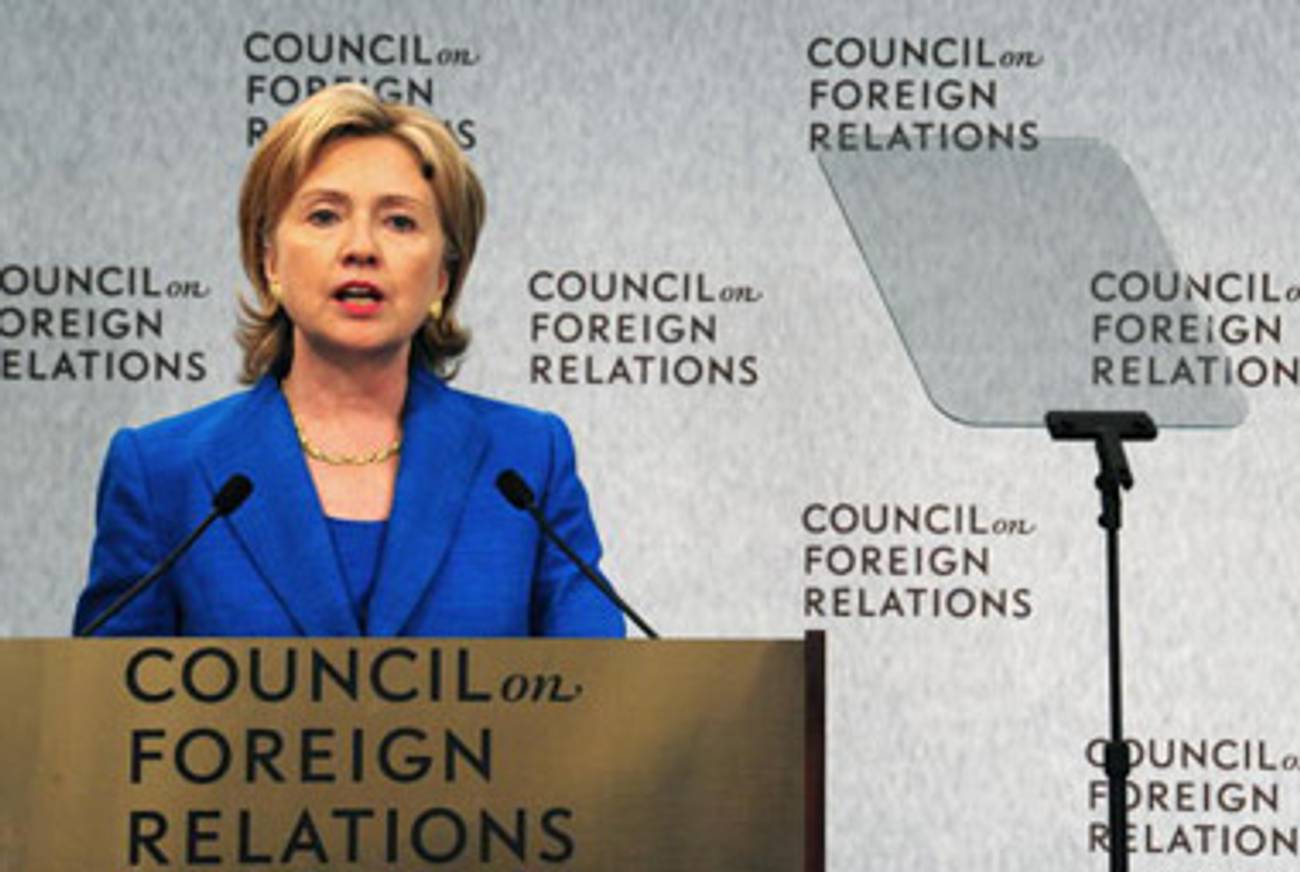Arabs Must Step Up
Clinton says in Council on Foreign Relations address




In her first major policy address as Secretary of State, delivered this afternoon at the Council of Foreign Relations in Washington, Hillary Clinton refused to name a deadline for a peace deal between the Israelis and the Palestinians—sidestepping the inevitable countdown that became a bete noir for her predecessor—but put the onus on Arab states to make an agreement happen soon. “We don’t think it is just the responsibility of the Israelis, or just of the Palestinians,” she said in response to a question after her address. The Obama administration expects action from Israel, she said, but it is depending on backup from Arab states in the form of “providing support to the Palestinians and offering a concrete opening, however modest, to the Israelis.”
Clinton referred to the examples of Egyptian President Anwar Sadat and King Hussein of Jordan in asking for help mobilizing “peace constituencies” and acting against cultures of “hate, intolerance and disrespect.” She also held out the example of the Saudi peace plan, which she noted has been supported by more than 20 nations. What she did not add was that the plan was endorsed by the Arab League after an amendment was added demanding the right of return for Palestinian refugees, something Israeli leaders—including centrist opposition leader Tzipi Livni—have dismissed out of hand. And it doesn’t help that Saudi Arabia’s Prince Turki al-Faisal said categorically in New York earlier this year that King Abdullah, who sponsored the peace proposal, “is not going to go to Jerusalem.”
But Clinton’s target audience might really have been the Israelis. Aside from not laying out any demands on the Netanyahu government, she explicitly committed herself to jump-starting bilateral negotiations—and, after months of opacity, to excluding Hamas from the picture. “We would expect Hamas to recognize Israel, renounce violence, and abide by prior agreements,” she said. “Rejectionism and resistance hasn’t really given them or their children the kind of future they would hope for. … There are certain entry requirements that have to be paid.” And, on a different note, she said that while the U.S. was going to continue offering engagement to the Iranians, she defended it as a strategic effort to rally allies for any eventual action to prevent a nuclear Islamic Republic.
Allison Hoffman is a senior editor at Tablet Magazine. Her Twitter feed is @allisont_dc.